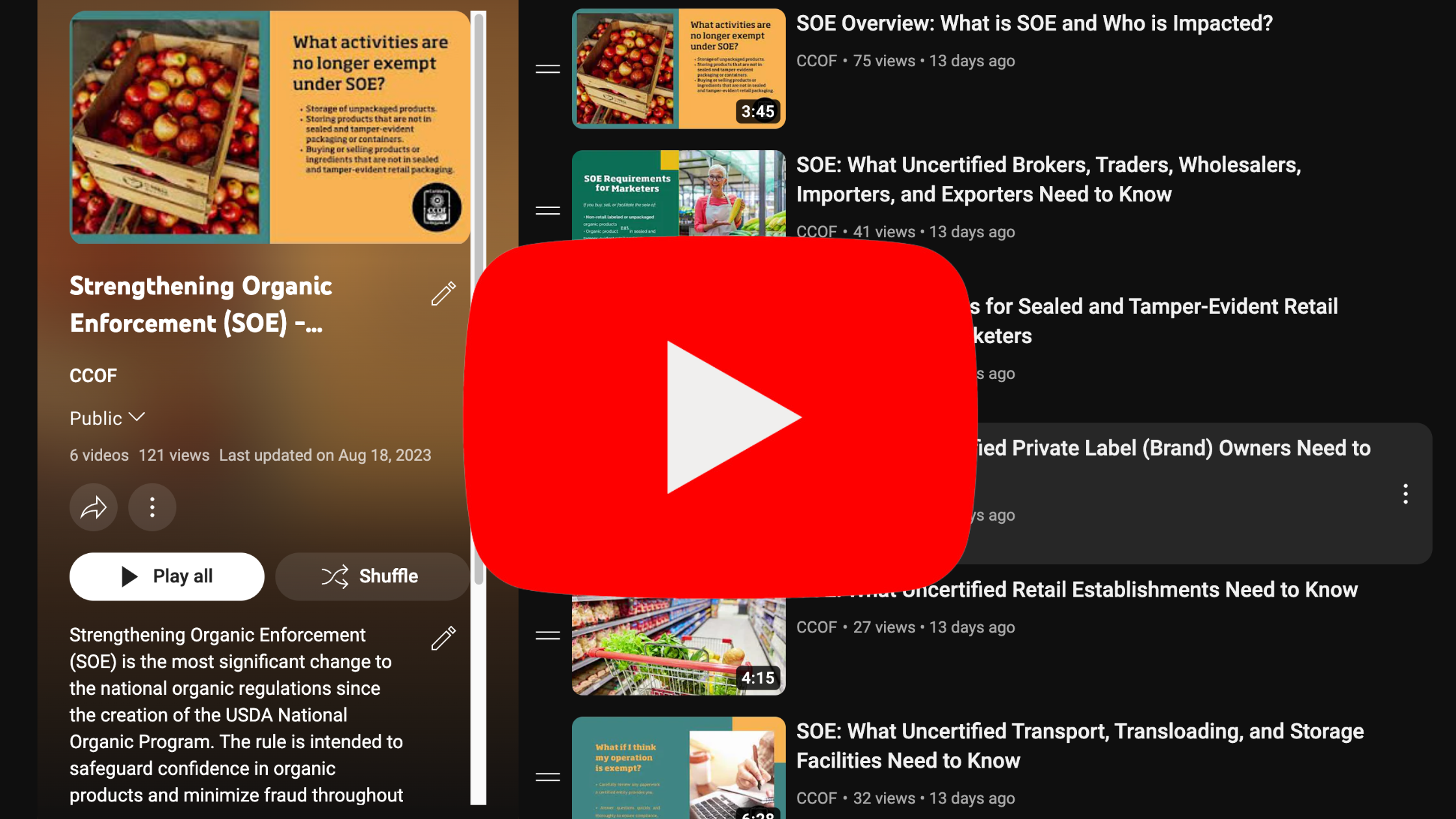
In the coming months prior to the Strengthening Organic Enforcement (SOE) Rule implementation deadline, CCOF will spotlight how the rule applies to specific operation types. You can watch our SOE video series to learn all about how the rule impacts brokers, importers, exporters, brand owners, retail establishments, transport, and storage facilities that store certified organic products. Exemptions for these operations have narrowed considerably. As of March 19, 2024, exemption will only apply to operations receiving, storing, and/or preparing organic products for shipment* if:
- All organic products are in sealed, tamper-evident packaging,**
- All organic products stay in the same sealed, tamper-evident packaging while in the operation’s control, and
- No other handling is done.
If all of these conditions are met the operation is not required to be certified (operation is exempt). However, all tracking records must be maintained. Your CCOF-certified customers will ask you to complete an Exempt Handler Affidavit (EHA). You can use this self-assessment to confirm your status and watch CCOF SOE’s video series to learn more.
If any of these conditions is not met, certification is required. CCOF is providing a discount on the one-time $350 application fee to operations affected by this rule change. Use the code SOE2023 discount code field of the application, and we will reduce your application fee, depending on when you submit your application.
- Applications received through December 31, 2023: $200 application fee ($150 discount!).
- Applications received in 2024: full application fee of $350.
You can find more about SOE on the CCOF website. Key takeaways and benefits of certification can also be reviewed in more detail here. If you have questions on how this applies to you, feel free to contact us at getcertified@ccof.org. If you’re ready to begin the certification process, you can get started today.
*The NOP rule defines “prepare for shipment” as putting packaged products into shipping containers, applying internal tracking numbers, shrink-wrapping shipping cartons to pallet, breaking down pallets of fully packaged products, adding protective packaging to nonretail containers, packing individual packaged products onto a shipping pallet, loading/unloading packaged product onto or from transport vehicles.
**The NOP rule defines “sealed, tamper-evident packaging” as contents are sealed in a manner where an attempt to break the seal, access the contents, or reclose the package would be obvious. Examples of nonretail tamper-evident packaging: produce boxes with “DO NOT TAMPER WITH” tape placed across box flaps, sealed bulk bags of flour, sealed drums or totes of olive oil. Examples of retail tamper-evident packaging: aseptically sealed jars, clamshells with sticker closing clamshell, zip-top produce bags sealed with sticker or strip that consumer must remove to open the packaging.